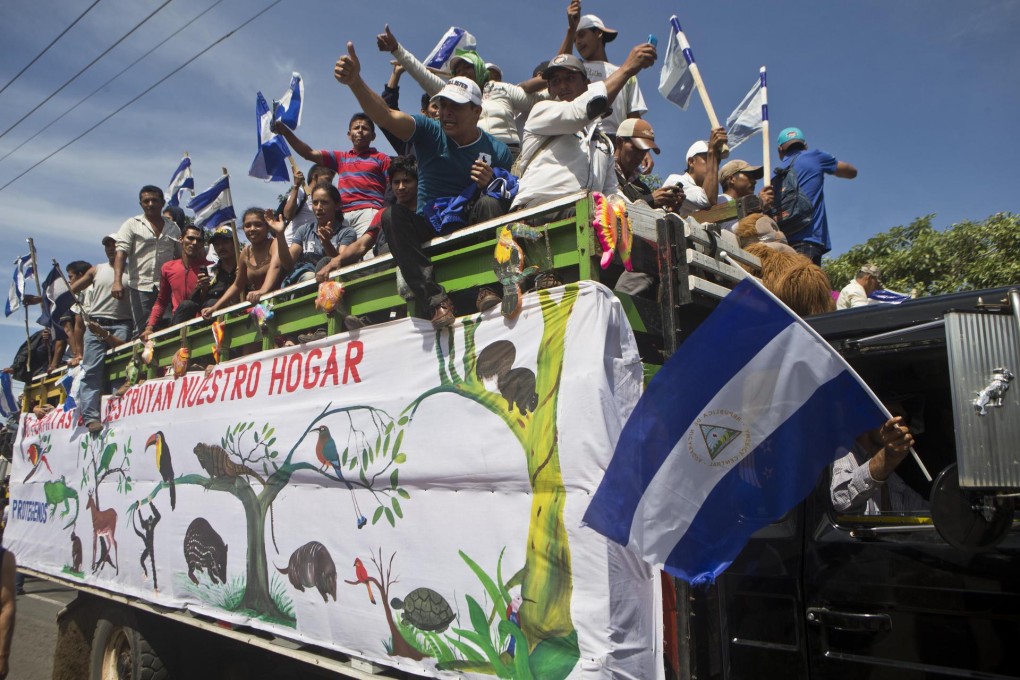Angry over land seizures and pollution, Nicaraguans block roads as Chinese-led mega canal project kicks off
Chinese-financed 275km waterway, due for completion by 2020, will shorten existing shipping routes and rival the Panama Canal

Groups of men blocked roads in Nicaragua to protest against a Chinese-financed interoceanic canal's ground-breaking ceremony last night.
"Viva Nicaragua!" they were shouting in videos shared by activists, expressing their fears about land seizures and pollution caused by the infrastructure project led by a Hong Kong-based firm.
Protesters said they had so far only blocked vehicles carrying employees of the HKND Group, the company holding the concession to build and operate the canal. Chinese surveyors have been assaulted, according to Nicaraguan media reports.
"This project will bring no benefit to the people of Nicaragua, it will only benefit the Chinese," said Danilo Lorio, a 24-year old leading the protests near San Miguelito on the western shore of Lake Nicaragua. "The compensation offer for our lands is ridiculous."
He is part of a group that calls itself the National Defence Council for our lands, lake and sovereignty. Construction of the canal would displace him and tens of thousands of others.
VIDEO: Nicaraguans block roads to protest against Chinese-led mega canal project